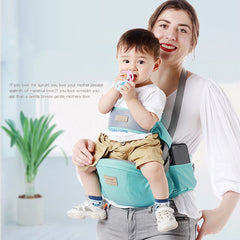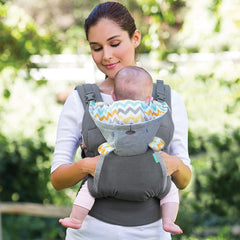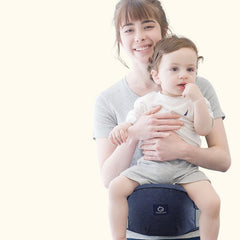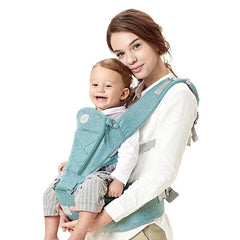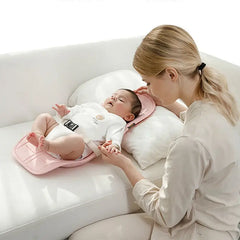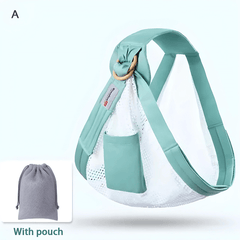The Truth About Baby Sleep Myths: Honest Answers for Parents
Hey there, new parents! Let’s talk about baby sleep—it’s one of those topics that everyone seems to have an opinion on, right? From well-meaning advice to old wives’ tales, there’s a lot of information out there. But what’s fact and what’s fiction? Let’s dive into some of the most common baby sleep myths and separate truth from myth to help you navigate this journey with more confidence.
Introduction
Getting your baby to sleep soundly is a big deal, and there’s no shortage of advice on how to achieve it. But amidst the sea of information, some myths can cloud the waters. Let’s bust through those myths and uncover what really works when it comes to helping your baby sleep peacefully.
Myth 1: Babies Will Sleep Through the Night if You Feed Them Solid Food Early

You might have heard this one from friends or family members eager to help your baby sleep longer stretches. The idea is that introducing solid foods sooner will lead to better sleep. But here’s the truth:
Myth Explained
Introducing solids early won’t magically make your baby sleep through the night. Babies have small stomachs and may still wake up for feedings even if they’ve started solids.
The Truth
Stick to the recommended timeline for introducing solids, typically around six months. Solid foods are important for nutrition, but they won’t guarantee longer sleep right away. A consistent bedtime routine and responding to your baby’s cues are more effective strategies.
Myth 2: Keeping Your Baby Up Late Will Make Them Sleep Longer

Ever tried keeping your baby awake thinking they’ll be so tired they’ll sleep like a log? It’s a common belief among tired parents, but it often backfires.
Myth Explained
The logic seems sound—if your baby is exhausted, they’ll crash and sleep for hours, right? Unfortunately, it doesn’t quite work that way with babies.
The Truth
Babies thrive on routine. An early bedtime, around 7-8 PM, actually helps them sleep better. Establishing a calming bedtime ritual, like a warm bath followed by a story, signals to your baby that it’s time to wind down.
Pro Tip
Consider using a baby bed bell rattle music star comfort toy. The soothing melodies and gentle lights can help create a peaceful environment conducive to sleep.
Myth 3: You Should Let Your Baby Cry It Out to Learn to Sleep Independently

This one’s a bit controversial, and you’ve probably heard strong opinions on both sides. Let’s break it down:
Myth Explained
Some believe that letting babies cry themselves to sleep is the only way they’ll learn to self-soothe and sleep through the night.
The Truth
There are gentler sleep training methods, like gradual retreat or the chair method, that can teach babies to fall asleep independently without letting them cry for long periods. Responding to your baby’s needs while encouraging self-soothing is key.
Myth 4: Babies Should Sleep in Complete Silence

Silence is golden, right? Not necessarily when it comes to baby sleep.
Myth Explained
Many parents think that a completely silent environment is best for their baby’s sleep.
The Truth
White noise, like the sound of a fan or a white noise machine, can actually help babies sleep better by masking other noises and mimicking the comforting sounds of the womb.
Myth 5: Bed-Sharing is the Only Way to Bond and Ensure Your Baby Sleeps Well

Bed-sharing can be a divisive topic among parents. Let’s unpack this myth:
Myth Explained
Some parents believe that sharing a bed with their baby promotes bonding and makes nighttime feedings easier.
The Truth
Room-sharing without bed-sharing is recommended for safety reasons, especially during the first six months. This means keeping your baby’s crib or bassinet in your room, which allows for closeness while reducing the risks associated with bed-sharing.
Pro Tip
Try using a baby correction head shaping pillow. It can provide gentle support and promote better head alignment during sleep, which can contribute to better overall sleep quality.
Conclusion
Navigating the world of baby sleep can be challenging, especially with so much conflicting advice out there. Remember, every baby is unique, and what works for one might not work for another. Trust your instincts, stay patient, and don’t hesitate to seek support when you need it.
For more tips on overcoming baby sleep challenges, check out our previous blog on 5 Baby Sleep Challenges and How to Overcome Them. And if you’re curious about how diet can impact your baby’s dental health, don’t miss our blog on Common Foods That Can Harm Your Baby’s Teeth.
Rest well, little ones!










